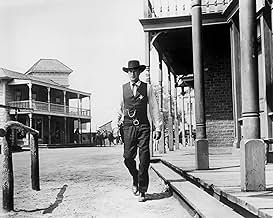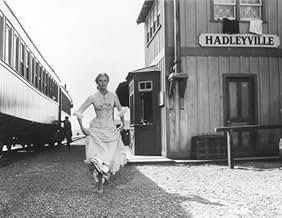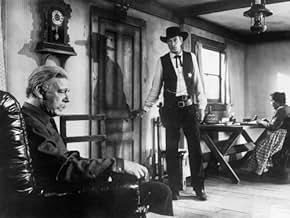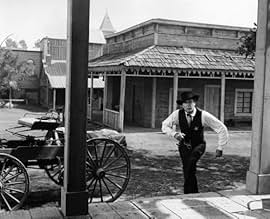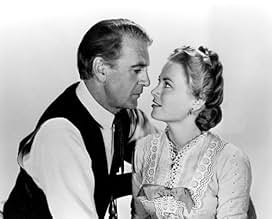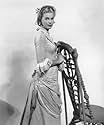Malgré le désaccord de sa jeune mariée et de ses concitoyens, un shérif de campagne doit faire face seul à une bande de meurtriers lorsque leur chef, un bandit condamné autrefois par ses soi... Tout lireMalgré le désaccord de sa jeune mariée et de ses concitoyens, un shérif de campagne doit faire face seul à une bande de meurtriers lorsque leur chef, un bandit condamné autrefois par ses soins, arrive par le train de midi.Malgré le désaccord de sa jeune mariée et de ses concitoyens, un shérif de campagne doit faire face seul à une bande de meurtriers lorsque leur chef, un bandit condamné autrefois par ses soins, arrive par le train de midi.
- Récompensé par 4 Oscars
- 17 victoires et 11 nominations au total
- Martin Howe
- (as Lon Chaney)
- Sam Fuller
- (as Henry Morgan)
- Jim Pierce
- (as Robert Wilke)
- Townsman
- (non crédité)
- Church Member
- (non crédité)
Histoire
Le saviez-vous
- AnecdotesIn 1951, after 25 years in show business, Gary Cooper's professional reputation was in decline, and he was dropped from the "Motion Picture Herald's" list of the top-ten box-office performers. In the following year, he made a big comeback, at the age of 51, with this film.
- GaffesIn a number of scenes there are Pabst Brewing signs seen on the inside and outside walls of the saloon. Although Pabst did brew in 1848, it did so under the name Best and Company and did not change to Pabst until 1889; the 37-star flag suggests the setting dates are between 1867-77.
- Citations
Helen Ramírez: You're a good-looking boy: you've big, broad shoulders. But he's a man. And it takes more than big, broad shoulders to make a man.
- ConnexionsEdited into Darkness at High Noon: The Carl Foreman Documents (2002)
- Bandes originalesHigh Noon (Do Not Forsake Me, Oh My Darlin')
Music by Dimitri Tiomkin
Lyrics by Ned Washington
Performed by Tex Ritter
[Played over the opening title card and credits; excerpts played throughout the movie]
Will Kane explains his outlook at the outset: there is no point in running away if that means spending the rest of your life watching your back. His best chance is to face his enemies on his home ground. At this point, he still thinks that honest folk will stand by him. The rest of the movie is a study in character: will he stand his ground when his entire world crumbles around him?
It is puzzling that Howard Hawks, John Wayne, and others thought of High Noon as un-American. I am not sure if this is because of the allegory of the McCarthy era; or the people of an American town collectively sticking their heads in the sand; or the Marshal throwing his badge to the ground in the last scene.
Clearly, the movie does not criticize McCarthyism itself. (It has nothing to say about communism, either.) It appears to criticize the people who did not stand up to McCarthy and the HUAAC, but it can equally well be seen as a comment on the appeasers who did not stand up to fascism or communism.
In any case, not too much must be made of the anti-appeasement angle, because the townsfolk is not the primary focus of the movie: the focus is on Will Kane. When the townsfolk behave like cowards, that gives Will Kane a chance to prove that he is a hero. If the town had stood by the Marshal, we would have seen, at best, an excellent Western like Rio Bravo, but not a masterpiece like High Noon. For Will Kane to be a hero, it is necessary that he stands alone.
No statement can convey the dramatic impact of Will Kane throwing his badge away, but it is worth discussing what this gesture means. For me, it means that the town and the badge were not worth fighting for. Will Kane fought for principle: he fought because he does not run away.
- SnorriGodhi
- 28 mai 2006
- Permalien
Meilleurs choix
Détails
- Date de sortie
- Pays d’origine
- Langues
- Aussi connu sous le nom de
- Quand le train sifflera trois fois
- Lieux de tournage
- Société de production
- Voir plus de crédits d'entreprise sur IMDbPro
Box-office
- Budget
- 730 000 $US (estimé)
- Montant brut mondial
- 217 $US
- Durée1 heure 25 minutes
- Couleur
- Rapport de forme
- 1.37 : 1
Contribuer à cette page





